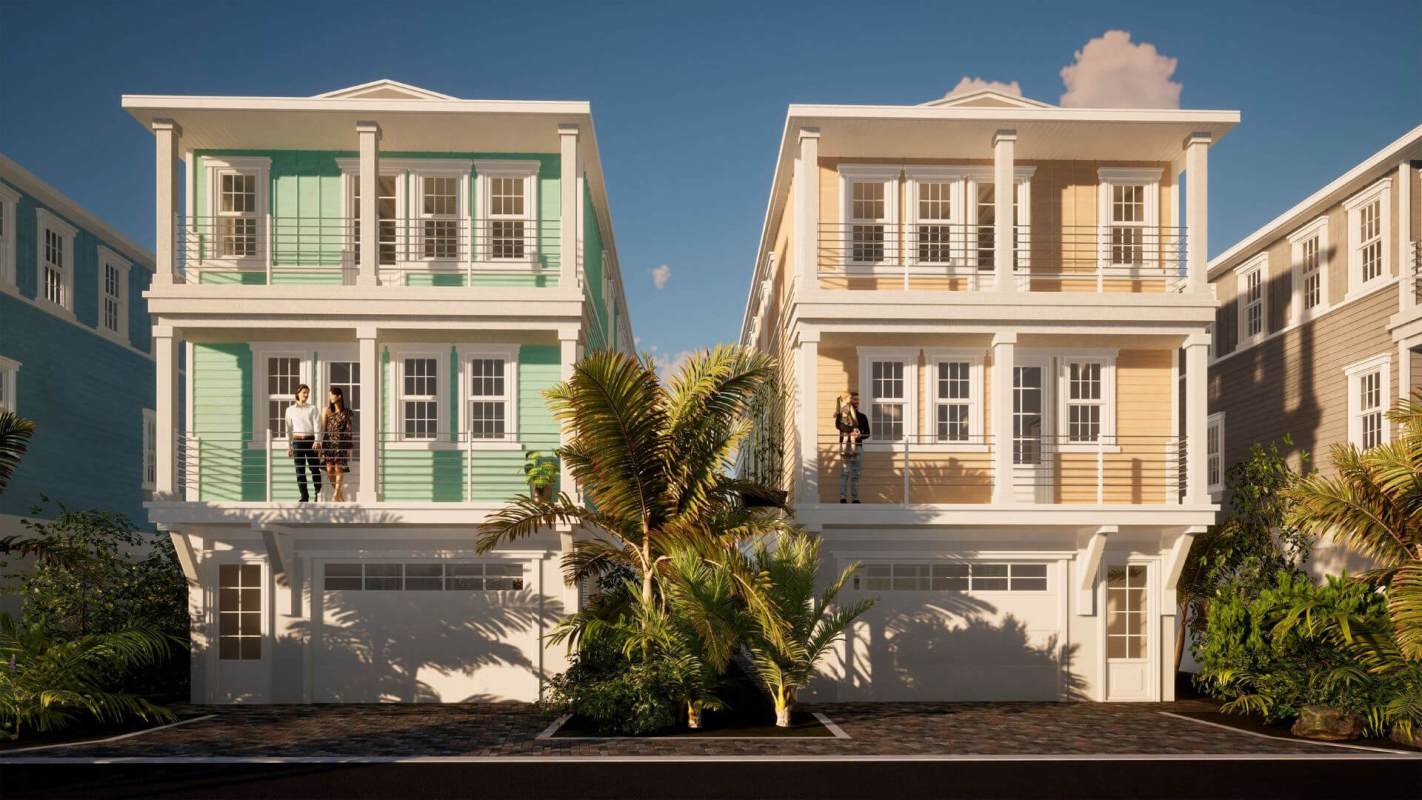A new residential development in Florida could serve as the model for eco-friendly construction for a sustainability-focused future
Hunters Point in Cortez, Florida, is a new high-end development that is different from the typical neighborhood — it will be entirely made up of energy-positive buildings, constructed using environmentally friendly techniques.
What is Hunters Point?
Hunters Point is a neighborhood of what the developers call Arye homes. They are designed to be energy efficient and durable enough to survive tropical storms. And they'll be built with sustainable materials and solar panels and feature home automation technologies.
The price for these high-end homes begins at $1.5 million.
Why construct this kind of community?
The website for the community describes a sustainability mindset that led to the creation of Hunters Point: "Our entire world is built around the pursuit of generational wealth. The idea is that you can earn enough in your lifetime to provide for the generations that will come after you. But what of the planet that your descendants will inherit?"
A green future is one that will require a reimagined energy system. Hunters Point leans into this concept with its net-positive energy Arye buildings.
What does net-positive energy mean?
A system (in this case, a building) is considered net-positive when it generates more energy than it consumes. Hydroelectric systems, wind turbines, and solar panels are examples of renewable energy technologies that can power a home and deliver an energy surplus.
Each Arye home is fitted with solar panels and home automation software that will optimize energy use to more easily achieve net-positive energy.
Why is net-positive energy important?
A sustainable energy grid will require communities across the world to reimagine how they generate the power necessary to sustain themselves. If homes are reengineered with a focus on efficient use of electrical power and resources, and if neighborhoods use renewable energy technologies like solar panels, we could lessen our dependence on fossil fuels.
Additionally, homes that are self-powered would not be as vulnerable during extreme weather events. Typical homes currently rely on larger power grids, which can become strained to the point of temporary failure or even outright destroyed.
Want more? Follow The Cool Down on Instagram and join our Weekly Newsletter for cool stories and easy tips that save you money, time, and our planet.








